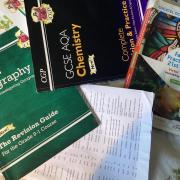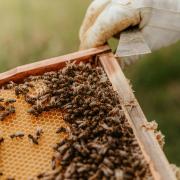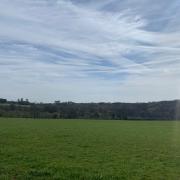
27th January 2019 - International Holocaust Memorial Day. Also, this day marks when one of the deadliest extermination camps, Auschwitz, was liberated by the British.
Kantor King Solomon High School hosted it's eight consecutive, annual inter-school workshop, to encourage the youth of Redbridge to reflect and remember the atrocities of the Holocaust.
Making the day all the more memorable for its attendees, was the appearance of Lady Zahava, a Holocaust survivor, and her daughter, Hephzibah, and her recounting of her experience.
Lady Zahava's Story & A Twist of Fate
Zahava had a younger brother, and initially lived peacefully with her mother and father. However, at the young age of nine, she was sent to a concetration camp in Bergen Belsen along with her mother and father. Her brother? In hopes of protecting her son, Zahava's mother handed over her six month year old son to the Dutch Resistance.
In Bergen Belsen, Zahava recalled their only source of nutrition was a single crust of bread and a brown, coffee like substance. The adults were forced to undertake hard labour for long hours, while she would wait for their return in the narrowm, cramped space of the cabins. In the mornings, Zahava remembered all the prisoners of the camp being called out into the open, regardless of the weather, in their sparse garments, for a roll call; the Nazi administrators of the camp would purposefully prolong the roll call, for hours even, to torture their victims.
Fortunately, the whole family were freed from the camp, and Zahava was reunited with her brother, nearly 5 years later.
One aspect of her story that even Zahava and her daughter comment on, is the weird workings of fate. From Zahava suprisingly not contracting Typhoid after infected feces were spilled on her plaits to being taken off the list of those being sent to Auschwitz, little elements of Zahava's story meant that she could be here today, in front of many impressionable teenagers, relaying her inspiring story.
Two Key Lessons
1. Despite the horrrors Lady Zahava endured, there exists no bitterness, even towards those whom perpetuated her pain. Regardless of her experience, Zahava maintains a suprising yet inspiring positive outlook on life. Her approach to her experience teaches us that failure and suffering does not define us. We have the power and capacity to live our life to the fullest, and no one can rob us of that.
2. When Hephzibah was asked whether she thought history had learnt from it's mistakes, she replied with a resounding no, referencing the recent Bosnia genocide. This event made many realise that merely thinking and mourning over these tragedies can only do so much, and evidently, it has not prevented humanity from making the same mistakes. It is our role as individuals, to challenge prejudice when we realise it. We cannot wait for escalation, we cannot wait until everyone is gone but us, a message reflected in Martin Niemoller's words:
"First they came for the socialists, and I did not speak out—because I was not a socialist.
Then they came for the trade unionists, and I did not speak out— because I was not a trade unionist.
Then they came for the Jews, and I did not speak out—because I was not a Jew.
Then they came for me—and there was no one left to speak for me."
A Resounding Message
Ignorance may be a bliss, but it enables us to fall victim to history's mistakes. For humanity to progress past the atrocities of our ancestors, we have to constantly be concious of the nature of the society we live in and take an active role in shaping its future. We ought not to restrict our recollection of history's horrors to a single day or event, but ensure that these memories remai fresh in our minds



























